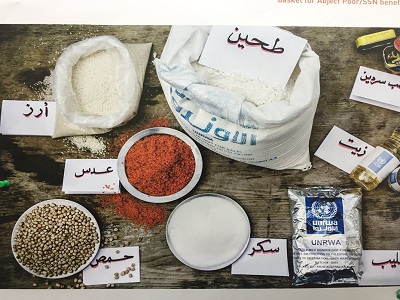
By Palestine Chronicle Staff
The United Nations Relief and Works Agency for Palestinian Refugees in the Near East (UNRWA) has stated that 80% of Gaza’s Palestinians “depend on humanitarian assistance to meet their basic needs.”
UNRWA has distributed some hot meals for a total of 26,557 poor refugees in the Gaza Strip during the holy month of Ramadan, sponsored by the UAE-based Khalifa Bin Zayed Al Nahyan Foundation.
“Due to the deteriorated economic situation and high unemployment rates in Gaza, many poor Palestine refugee families do not have access to hot meals, especially in Ramadan. Thanks to the Khalifa Bin Zayed Al Nahyan Foundation we were able to provide thousands of families with a festive meal,” said Mohammed Abu Daya, a Program Officer of the UNRWA Relief and Social Services Program.
Top story: @UNRWA: '#Gaza blockade has led to unemployment, poverty, aid depend… pic.twitter.com/hqzoFi4el4, see more https://t.co/ckYECnhwmB
— harlechnnorfolk (@harlechnnorfolk) June 17, 2016
UNRWA added, “The blockade on Gaza, now in its tenth year, and repeated cycles of armed conflict, have crippled the enclave’s trade sector and forced a large part of the population into poverty and misery. The unemployment rate in Gaza stood at 41.2 per cent in the first quarter of 2016, according to the Palestinian Central Bureau of Statistics. It is practically unchanged from the unemployment rate for 2015 overall (41.1 per cent). This is higher than any other economy of the world, as reported by the World Bank.”
The situation in the Gaza Strip has deteriorated since the Israeli blockade which prevents many items needed for survival from getting in or out. The restrictions also impacted the movement of people and have affected all walks of life in the coastal enclave.
Gaza, life under siege: How has the Israeli and Egyptian blockade affected Palestinians' lives in Gaza? https://t.co/CuTbeLx4X6 by @AJLabs
— Al Jazeera English (@AJEnglish) June 28, 2016
Commenting on the situation in the Gaza Strip since 2007, UNRWA said, “Today, approximately 80 percent of the population in Gaza depend on humanitarian assistance to meet their basic needs. While in the year 2000, UNRWA provided approximately 80,000 refugees in Gaza with food assistance, this number has increased to more than 930,000 today – almost 70 per cent of the refugee population and over 50 per cent of the total population. Basic in-kind food assistance enables poor households to allocate their limited resources to other relevant items such as fresh vegetables, meat or school stationary for their children.”




